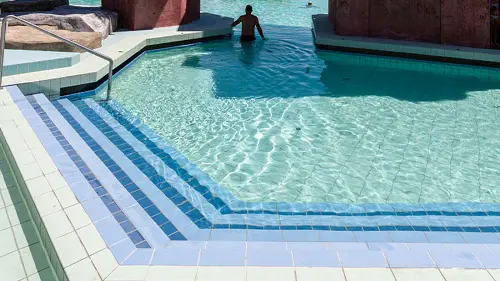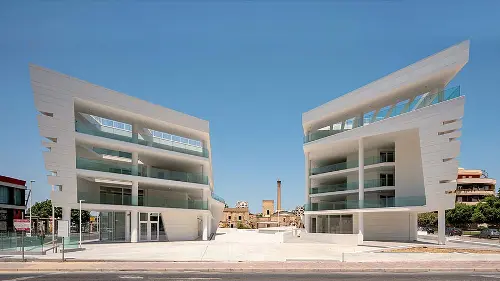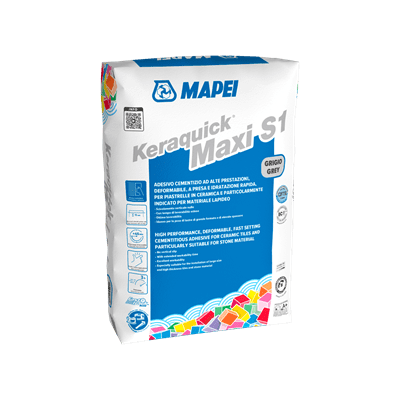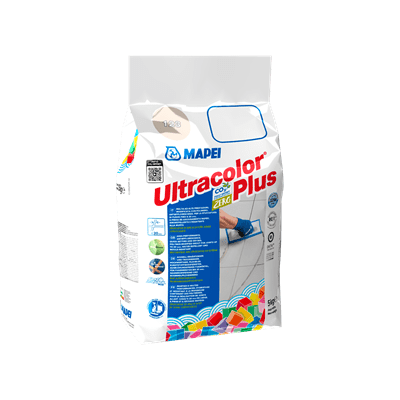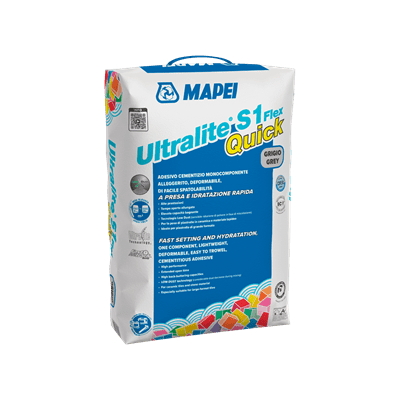
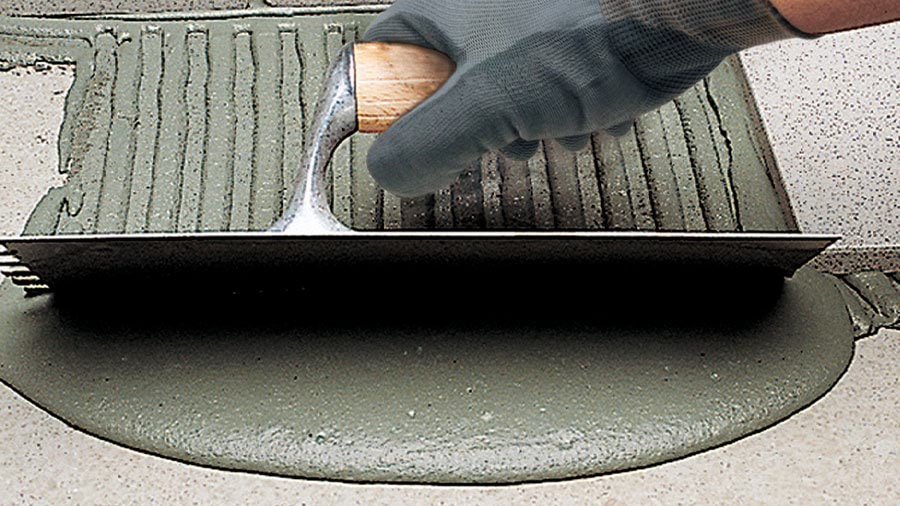
Products
Interviews
/
4/2/2024
From natural stone to ceramic tiles: the aim is to be quick
Flooring for commercial buildings, shopping malls and private homes ready for traffic in just few hours
Mapei rapid installation products for ceramic tiles and stone have a 35-year history. Initially developed to address issues with natural stone installations like deformation and staining, these products have since evolved significantly.
Let us talk about rapid products for installing ceramic tiles and stone: shall we take a look at their story?
For Mapei, the story of these products dates back more than thirty five years when the need arose to overcome problems encountered when installing various types of natural stone (green marble, slate, Carrara marble, and Statuario marble to name just a few), problems such as deformation and/or staining of slabs due to the effect of absorbing water used for mixing traditional sand and cement adhesives.
In fact, the products generally in use to install slabs more than 20-30 mm thick started to show problems when, thanks to new cutting technologies available, it became possible to cut quarried blocks into slabs just 10 mm thick.
To find a solution Mapei developed a method to evaluate deformation and criteria to classify natural stone according to the level of deformation caused by contact with a source of moisture, a method that is now recognised at international level and adopted by European standard EN 14617-2.

A rapid system for installing or renovating flooring in a commercial setting.
Tests carried out according to this standard in Mapei Research & Development laboratories showed that movements of the stone, at times quite large after 10-12 hours, were slow and regular and could be easily prevented by using a rapid-setting adhesive with the ability to fix the material, even after 3-4 hours, thereby impeding further deformations.
This is how GRANIRAPID was born, a special, two-component adhesive that was able to fix stone materials three hours after installation and, unlike traditional systems, to be perfectly dry after 24 hours, because it is made using special hydraulic binders that are able to chemically bond with all the mixing water.
This characteristic made the adhesive particularly suitable for bonding natural stone, also because it helps overcome the problem of surface efflorescence or staining, even on materials such as Carrara white marble, fine-grained crystal marble from Greece or Aurisina marble, well known for being sensitive to staining due to moisture in the installation bed, which often changes their appearance.
Since then has Mapei developed other new products for rapid installation work?
Yes. When the market turned towards ceramic tiles, our adhesives were adapted to this new requirement and enabled execution times of floor and wall coverings to be reduced.
Today, in Mapei, we have various complete rapid systems for all the various stages of installing ceramic and stone flooring, from screed products to skimming compounds, from waterproofers to adhesives and from grouts to sealants.
We can easily say that, since the first rapid product, GRANIRAPID, which is still part of our portfolio, we have come a long way and formulated products that meet a host of requirements, while also following the evolution of the market from ceramic tiles to natural stone.
Among them, I would like to highlight ELASTORAPID high performance, highly deformable, quick-setting and drying cementitious adhesive which is especially suitable for large-size ceramic tiles and stone materials, and KERAQUICK MAXI S1, deformable, rapid-setting and hydrating, non-slip cementitious adhesive particularly recommended for stone, including thick, large format stone slabs.
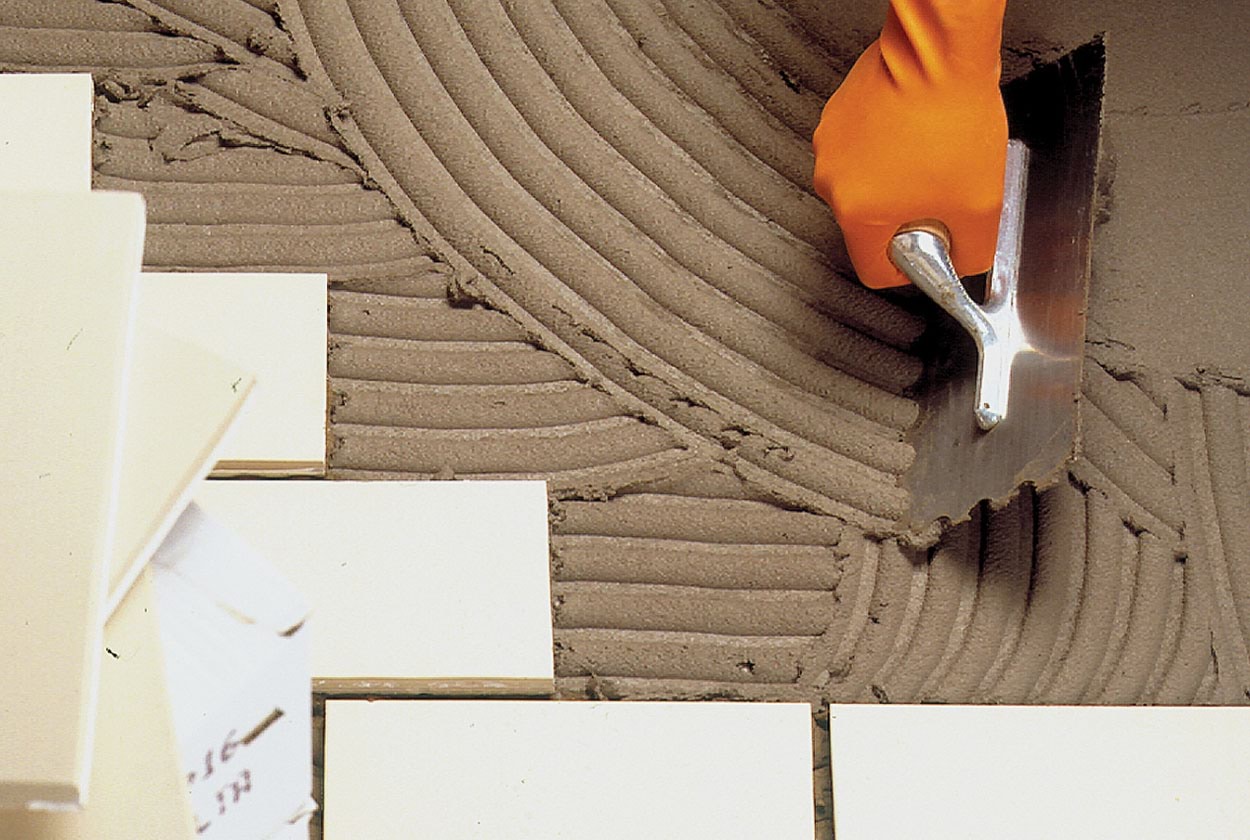
ELASTORAPID is a high performance, highly deformable, quick-setting and drying cementitious adhesive which is especially suitable for installing large-size ceramic tiles.
Where are these products used mainly?
Today, rapid products are required for sites where, because of commercial or private needs, renovation of flooring needs to be completed quickly. So, I am thinking about shopping centres, supermarkets, airports and all those commercial activities where work needs to be completed quickly, even overnight. In private settings, too, there may well be this requirement, such as if a client wishes to re-do the flooring or terrace in their home and complete the work in just a few hours.
Could you give us an example of a Mapei rapid system and its installation times?
If we think, for example, about a commercial setting, our rapid system to renovate flooring allows a surface to be reopened to foot traffic after just 9 hours, using MAPECEM PRONTO pre-blended mortar for the screed, GRANIRAPID or another rapid adhesive to install the ceramic tiles, and ULTRACOLOR PLUS to grout the joints.
If we think about waterproofing and installing ceramic on a terrace, on the other hand, the time required to obtain a dry surface ready to foot traffic is around 13 hours: we would use MAPECEM PRONTO to create the screed, MAPELASTIC TURBO mortar together with MAPEBAND rubber tape and MAPENET 150 fibre glass mesh for waterproofing the substrates, ELASTORAPID or another rapid-setting adhesive to install the tiles, ULTRACOLOR PLUS to grout the joints and MAPESIL AC to seal the expansion joints.
As you can see, these times are extremely short if we compare them with the times required by traditional products, which are normally several weeks.
Can these products be used at all temperatures?
Yes, our products for natural stone are widely used in the Middle East and South East Asia, where the temperature on site can be really high. But rapid systems are also used at low temperatures to reduce the waiting time required before putting a floor into service. Having said that, they cannot be used at any temperature. It is important that, at the moment of installation and when the adhesive is still in its fresh state, the surrounding temperature is above 0°C






